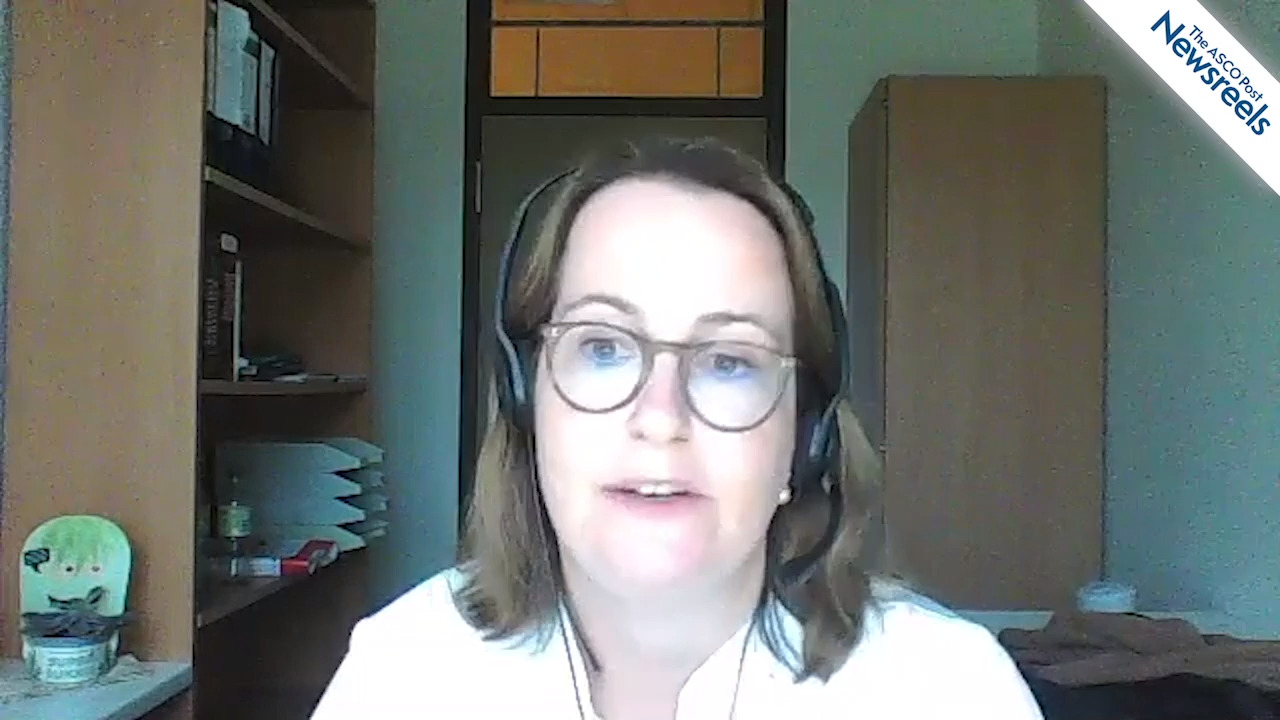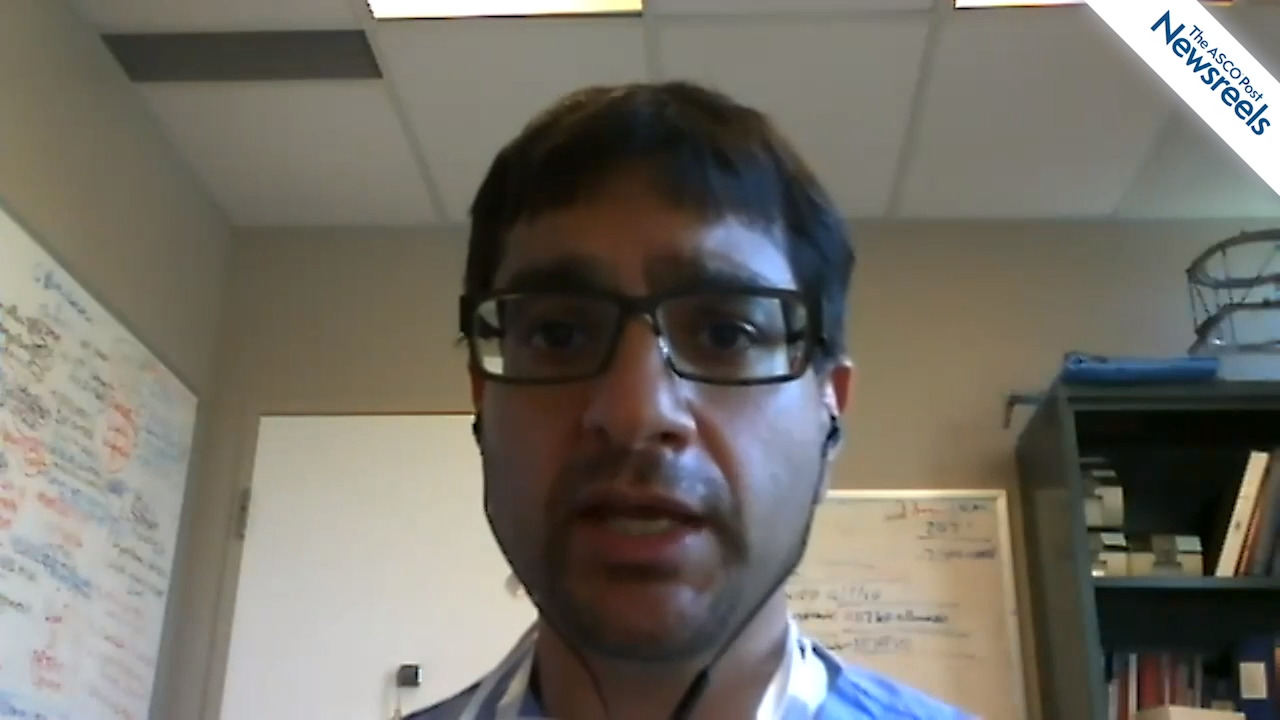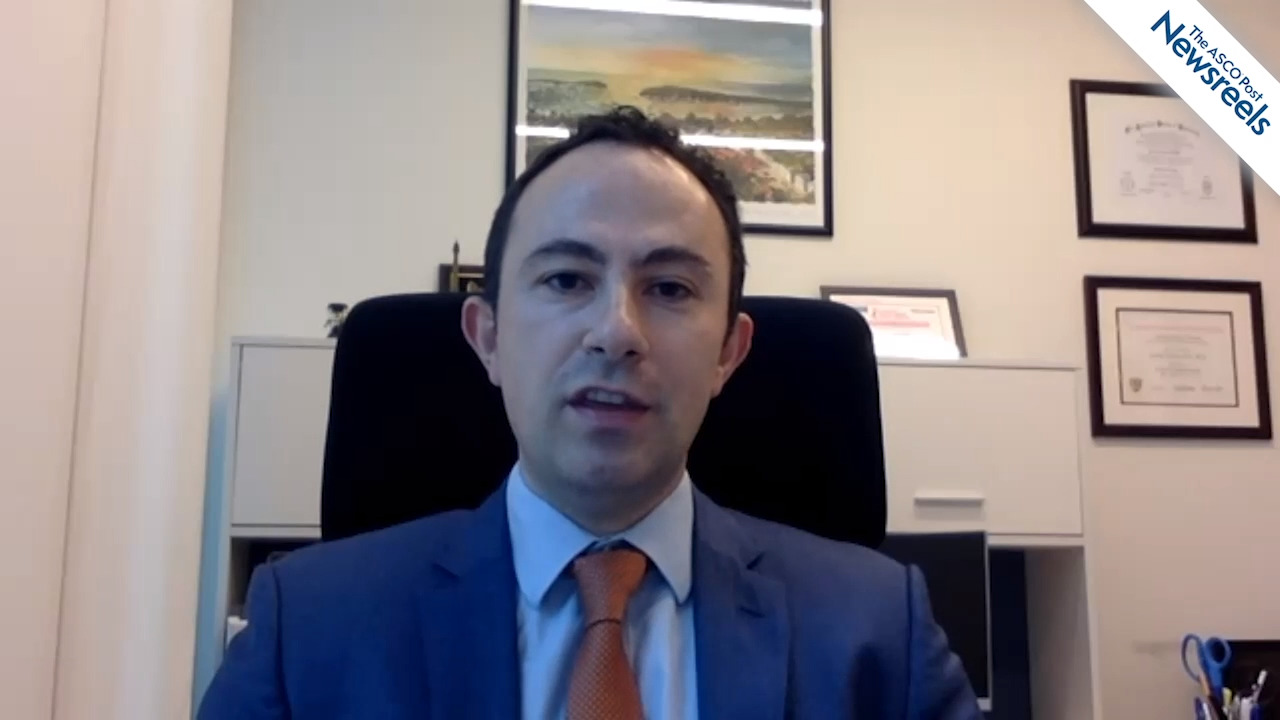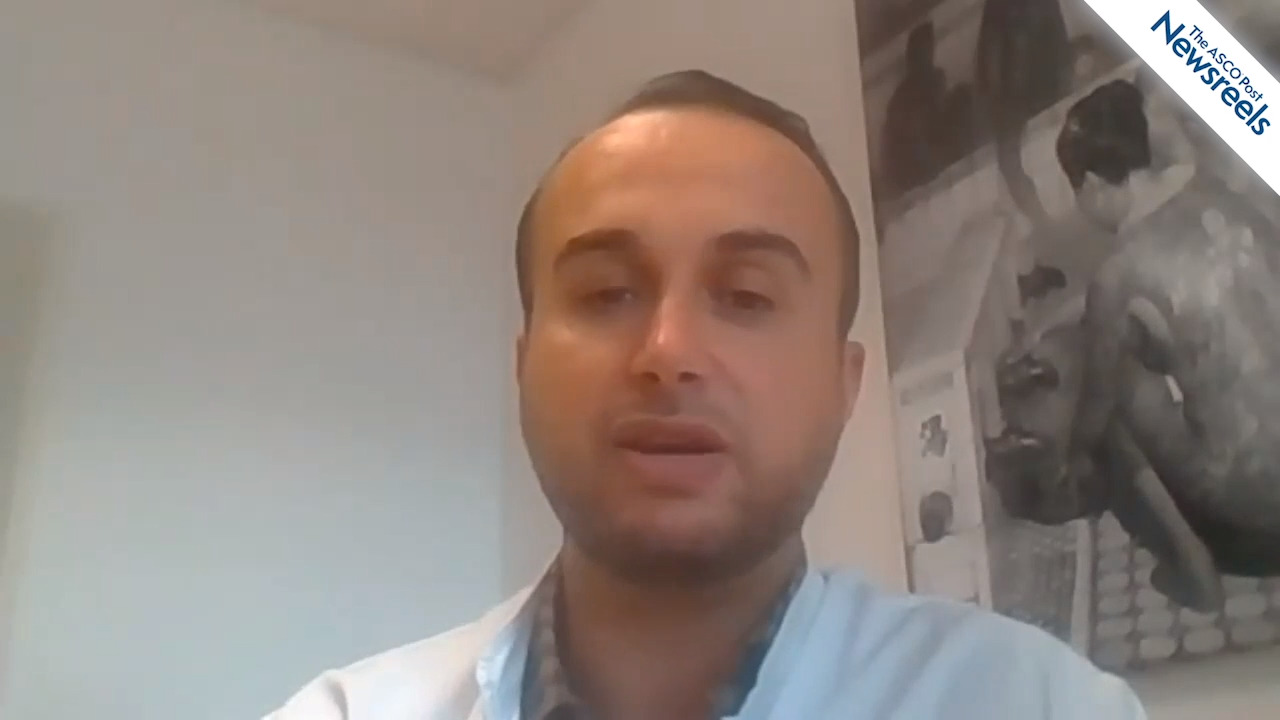Linda G.W. Kerkmeijer, MD, PhD, on Prostate Cancer: Adding a Focal Boost to External-Beam Radiotherapy
2020 ASTRO Annual Meeting
Linda G.W. Kerkmeijer, MD, PhD, of the University Medical Center Utrecht and Radboud University Medical Center, discusses results from the phase III FLAME trial, which explored the question of whether biochemical disease–free survival can be improved by adding a focal boost to the intraprostatic lesion in whole-gland external-beam radiotherapy for patients with intermediate- and high-risk prostate cancers (Abstract 126).
Juliane Hörner-Rieber, MD, of Heidelberg University Hospital, discusses phase III results of the MINT trial, which showed that conventionally fractionated intensity-modulated radiotherapy with a simultaneous integrated boost was noninferior to three-dimensional conformal radiotherapy followed by a sequential boost for both local control and cosmesis in patients with breast cancer (Abstract 19).
The ASCO Post Staff
Arjun Sahgal, MD, of the Sunnybrook Health Sciences Centre, discusses results of the first phase III trial to suggest that dose escalation with stereotactic body radiotherapy may be superior to conventional palliative radiotherapy in improving pain outcomes for patients with spinal bone metastases (Abstract LBA2).
The ASCO Post Staff
Justin Oh, MD, of the University of British Columbia, discusses results from the ASCENDE-RT trial, which compared a low-dose–rate brachytherapy boost to a dose-escalated external-beam boost for patients with high- and intermediate-risk prostate cancers (Abstract 127).
The ASCO Post Staff
Youssef Zeidan, MD, PhD, of the American University of Beirut Medical Center, discusses study findings showing that breast-conserving surgery, whole-breast irradiation, and trastuzumab offer effective local tumor control for patients with HER2-positive breast cancer. An additional radiation boost does not seem to further improve outcomes (Abstract 52).
The ASCO Post Staff
Paul Sargos, MD, of the Institut Bergonié, discusses phase III findings from the GETUG-AFU 17 study, which compared adjuvant vs early salvage radiotherapy, both combined with short-term androgen-deprivation therapy after radical prostatectomy for localized prostate cancer. Although lacking statistical power, the study showed no benefit in event-free survival for adjuvant compared to salvage radiotherapy (Abstract 33).





